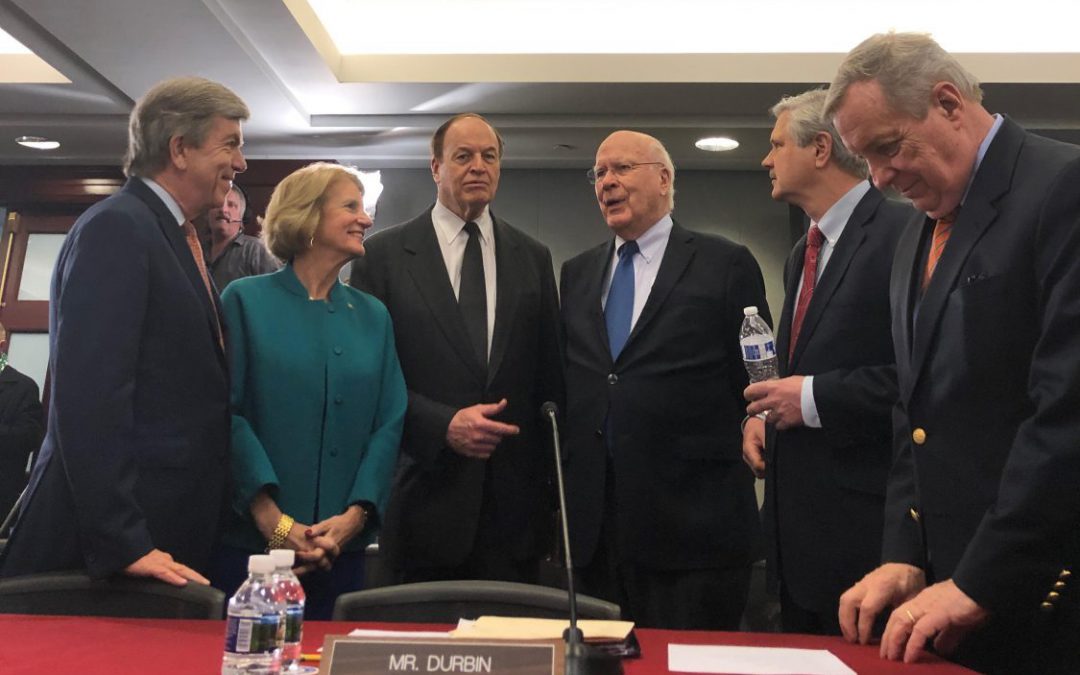WASHINGTON — Legislators began negotiating funding for the Department of Homeland Security Wednesday. The bicameral conference committee has two weeks to reach a compromise before the stopgap government funding bill expires Feb. 15. However, the president tweeted earlier Wednesday morning that the committee should include funding for a border wall, otherwise they would be “wasting their time.”
If a compromise between Democrats and Republicans is not reached to fund those agencies that fall under the Feb. 15 deadline, Trump has threatened to either shut down the government for a second time or unilaterally declare a national emergency.
The first meeting of the bipartisan conference committee, composed of appropriators from both the House and the Senate, stressed the importance of compromise, though disagreed on the key point of a physical barrier at the U.S.-Mexico border.
House Appropriations Committee Chairwoman Nita Lowey, D-N.Y., chaired the conference committee. In her opening statement, Lowey said the conference committee will expand on the $1.6 billion for border security, using “proven solutions” such as equipment at ports of entry, new technology and resources to meet the humanitarian needs of migrants.
“Smart border security is not overly reliant on physical barriers, which the Trump administration has failed to demonstrate are cost effective compared to better technology and more personnel,” she said.
Lowey said she is confident the committee will be able to reach a compromise.
Chair of the Senate Appropriations Committee Richard Shelby, R-Ala., agreed with the president, saying although the conference committee is focused on a comprehensive approach to border security, a physical barrier would have to be included in an appropriations bill.
Border patrol officials cite a comprehensive approach to security, he said, including technology, personnel and strategic physical barriers. Multiple members on the committee recommended speaking with border patrol officials or traveling to the border itself to learn what is required to secure it.
“Whether it’s a wall, or fence, or something, I think he’s focused on physical barriers,” he said. “I believe we’re going to have to have some physical barriers.”
Shelby added that if it were up to only the conference members, he’d “bet we’d do it by tomorrow night.”
Department of Homeland Security Appropriations Subcommittee Chairwoman Lucille Roybal-Allard, D-Calif., outlined her funding plan to the conference, which will then be revised and debated on by its other members. The proposals included bankrolling an additional 1,000 customs experts, new imaging technology at land ports of entry, humanitarian aid and technology such as drones and cameras for spaces between land ports. The plan did not include funding for a wall or physical barrier.
Roybal-Allard said the proposal has not yet been completed, but will be distributed to conference members as soon as possible.
Committee members emphasized the fact that the final appropriations bill will be a compromise, meaning “nobody gets everything they want,” according to Sen. Roy Blunt, R-Mo.
Sen. Dick Durbin, D-Ill., reiterated that point, noting that the deal the committee finally agrees upon may not include everything the president wants in a DHS funding bill.
“The president may be disappointed if we don’t give him everything he asked for, but if this appropriations committee did that, it would be the first in history,” he said.
It is unclear when the next meeting of the conference committee will be, but Rep. Steven Palazzo, R-Mo., said he was excited he heard a lot of concrete ideas from conference committee members instead of rhetoric.
“I think it went great,” Palazzo said. “It just sounds like everybody wants to get to work. They want to agree on what we can agree on and start attacking the things that we disagree on to hopefully come to a bipartisan solution to…provide for proper border security, to address the humanitarian crisis and avoid another government shutdown.”

